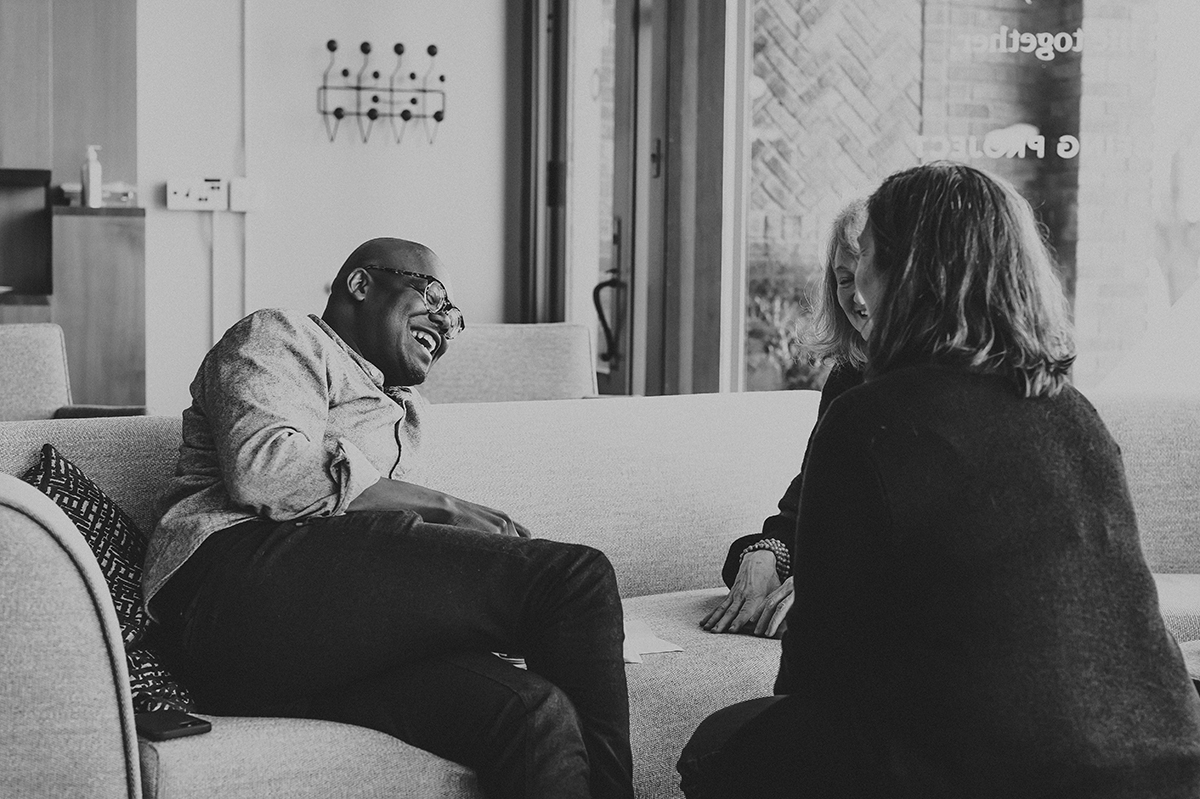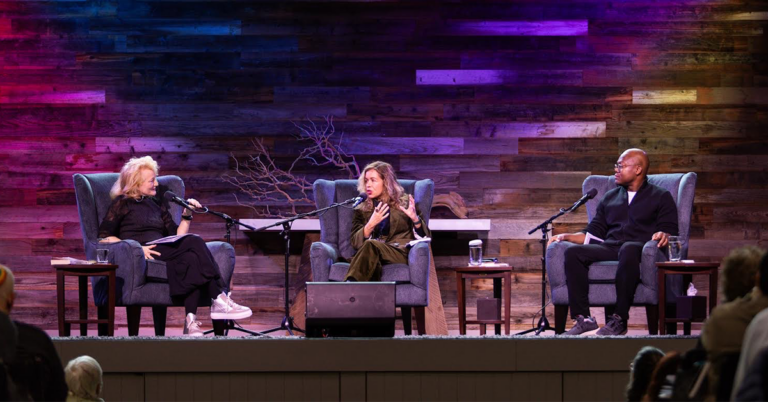From Lucas:
My wise teachers over the years, some of whom have been guests at On Being, have always emphasized the connection between the work we do in ourselves and the work we do in the world around us. They have learned through experience that deep transformative work — for which many have risked their lives — demands, and sometimes comes out of, deep personal searching and growth. We live in this remarkable moment when the survival of our species, and of our democracies, is as dependent on what we restrain ourselves from doing as on what we choose to do. Meeting this moment requires an inward journey.
As Krista, my colleague and teacher, explains, “In this century, the question of what it means to be human has become inextricable from the question of who we will be to each other.” This understanding informs On Being’s work in the world. The deep chasms in our social and political lives show up in private, in our homes, our families, and in our bodies. We discern that our project has a role to play, despite the immensity of it all, in reintegrating all that has been fractured — work of healing.
Our strategies for public life — life together — are oriented towards the long-term creation of resilient relationships across differences and towards wholeness in lives and communities. “Gathering,” for us, is not about conferences or lectures. It’s about creating the space for relationships to form and inviting people into quiet conversation where vulnerability and uncertainty can be held.
The best community organizers know that relationships provide the deepest impetus for the lasting transformation of alienation and violence so that something truly new can be sustained, but relationship is hard to scale. Our work is rooted in a media project whose audience is deeply invested and expanding, giving us the potential to bring the impact of relationships to scale. We gather in-person in select moments and contexts and we are always convening a far-reaching community, inviting people into the conversations with themselves and each other that lasting change requires. This human aspect of culture-shift is an indispensable foundation if the best policy outcomes are to have any possibility of meaningful success. We devote ourselves to this task.

